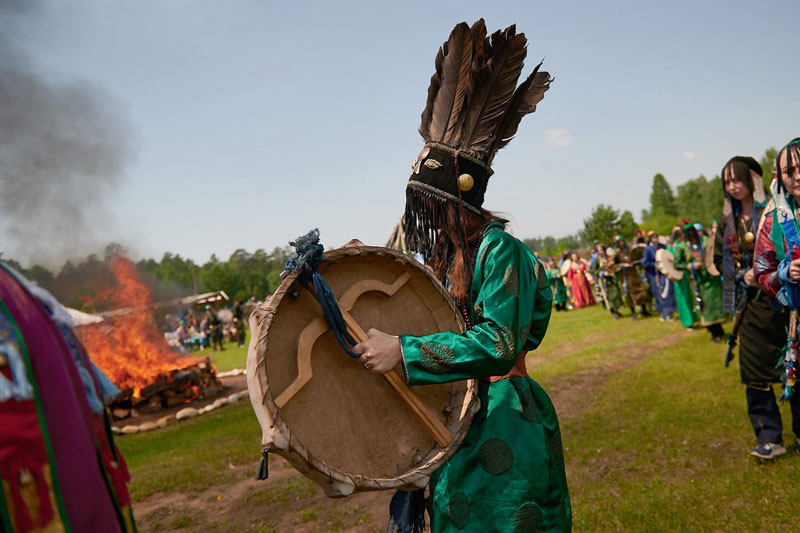 Hundreds of people flocked to southern Siberia in late June to celebrate the ancient rituals and traditions of shamanism in one of Russia’s first shaman festivals.
Hundreds of people flocked to southern Siberia in late June to celebrate the ancient rituals and traditions of shamanism in one of Russia’s first shaman festivals.
Some researchers consider Siberia to be the heartland of shamanism. Today, this ancient religious practice is still performed in Russia, with spiritual healing techniques and ceremonial rites passed on from generation to generation.
More than 100 shamans came to the Irkutsk region for the festival, travelling from neighbouring regions and from as far away as Vladivostok on Russia’s Pacific coast.
In addition to showcasing their unique culture, Russian shamans used the festival as a platform to voice their rights and seek recognition of shamanism as a religion at the state level.
“We prayed for the prosperity of our country, for the well-being of indigenous peoples and for mutual understanding,” Artur Tsybikov, the deputy of Russia’s Supreme Shaman, told The Moscow Times.
In addition to showcasing their unique culture, Russian shamans used the festival as a platform to voice their rights and seek recognition of shamanism as a religion at the state level
The festival was organized primarily for shamans as a venue for them to meet and exchange professional experiences and worldviews.
Event organizers said one of their goals is to make shamanism one of Russia’s official religions. “We addressed a letter to the President of Russia and to the Federation Council, where this issue is currently being considered,” Tsybikov said.
Shaman rituals in Siberia typically involve healing, purifying and divination.
This festival is also part of a public awareness campaign aimed at increasing recognition of shamanism as a profession within Russia.
About 100 shamans from the Russian republics of Buryatia, Khakasia and Sakha and the Irkutsk region attended the festival. Some 300 people attended in addition to the shamans to learn more about shaman culture and out of professional interest.
Shaman rituals can be beautiful and intimidating at the same time.
According to festival organisers, the event was held to preserve shamanistic traditions, originality and diversity. “The more of us there are, the more interesting life is,” Tsybikov said.